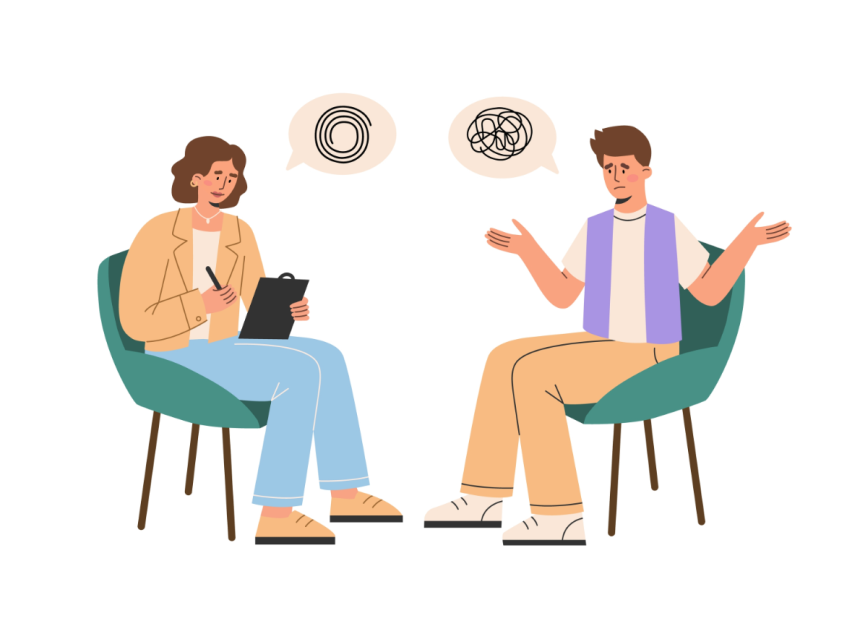In recent years, there has been a growing recognition of the importance of mental health and seeking professional help when needed. Whether you’re dealing with anxiety, depression, or relationship issues, or simply want to improve your overall well-being, finding the right therapist can be a crucial step towards healing and growth. However, the process of choosing a mental health professional can be daunting, especially with the wide range of options available today. In this blog post, we’ll explore some tips to help you navigate this journey and find a therapist who is the right fit for you.
- Why is Choosing the Right Therapist Important?
- Identify Your Needs and Goals
- Understand Different Therapy Approaches
- Consider Specializations and Expertise
- Research and Gather Recommendations
- Check Credentials and Licensure
- Consider Logistics and Practicalities
- Schedule Initial Consultations
- Evaluate the Therapeutic Relationship
- Be Open and Honest
- Give It Time
Why is Choosing the Right Therapist Important?
Before diving into the tips, let’s first understand why choosing the right therapist is so crucial. Whether we are talking about finding a counselor in Denver or any other city, therapy is a highly personal and intimate process that involves opening up about your thoughts, feelings, and experiences. A strong therapeutic relationship built on trust, empathy, and understanding is essential for the success of therapy. When you feel comfortable and connected with your therapist, you’re more likely to make progress and achieve your therapeutic goals.
On the other hand, working with a therapist who isn’t the right fit can hinder your progress and may even lead to a negative therapy experience. Therefore, taking the time to find a therapist who resonates with you and meets your specific needs is key to a positive therapeutic journey.
Identify Your Needs and Goals
The first step in finding the right therapist is to identify your needs and goals for therapy. Take some time to reflect on what you hope to achieve through therapy and what issues or challenges you want to address. Are you struggling with anxiety or depression? Do you need help navigating a difficult life transition? Are you looking for support in improving your relationships or self-esteem? Clarifying your goals will help you narrow down the type of therapist and approach that will best suit your needs.
Understand Different Therapy Approaches
Therapy comes in various forms, each with its theoretical approaches and techniques. Some common therapy modalities include cognitive-behavioral therapy (CBT), psychodynamic therapy, humanistic therapy, and mindfulness-based approaches. Researching these different approaches can help you understand what to expect from therapy and which approach aligns best with your preferences and goals. Keep in mind that many therapists integrate multiple approaches into their practice, so don’t feel limited to choosing just one.
Consider Specializations and Expertise
When searching for a therapist, consider their specializations and areas of expertise. Mental health professionals often have training and experience in specific areas such as trauma, addiction, LGBTQ+ issues, eating disorders, or couples therapy. If you have a particular concern or are seeking therapy for a specific issue, finding a therapist who specializes in that area can be beneficial. They will have the knowledge and skills to address your needs effectively.
Research and Gather Recommendations
Once you have a clear idea of your needs and preferences, start researching therapists in your area. You can use online directories, search engines, or mental health platforms to find therapists who match your criteria. Additionally, ask for recommendations from friends, family members, or healthcare professionals. Personal recommendations can be valuable in finding a therapist who has a good reputation and track record of helping clients.
Check Credentials and Licensure
Before scheduling an appointment with a therapist, verify their credentials and licensure. In most countries, therapists are required to have a valid license to practice, which ensures they have met the necessary education, training, and ethical standards. You can usually find information about a therapist’s credentials on their website or by contacting their licensing board. It’s essential to work with a licensed therapist to ensure you receive safe and effective treatment.
Consider Logistics and Practicalities
When choosing a therapist, consider practical factors such as location, availability, fees, and insurance coverage. Is the therapist’s office conveniently located for you? Do they offer flexible appointment times that fit your schedule? What are their fees, and do they accept your insurance plan? These practical considerations can impact your ability to attend therapy regularly and affordably, so it’s important to discuss these details upfront.
Schedule Initial Consultations
Many therapists offer initial consultations or phone calls to discuss your needs, ask questions, and determine if they’re the right fit for you. Take advantage of these consultations to get a sense of the therapist’s approach, communication style, and personality. Pay attention to how comfortable you feel talking to them and whether they seem genuinely interested in understanding your concerns. Trust your instincts and don’t hesitate to try multiple consultations with different therapists before making a decision.
Evaluate the Therapeutic Relationship
During your initial sessions with a therapist, pay attention to the quality of the therapeutic relationship. A good therapist-client relationship is characterized by trust, empathy, mutual respect, and collaboration. Your therapist should create a safe and non-judgmental space where you feel heard, understood, and supported. If you feel uncomfortable, misunderstood, or disconnected from your therapist, it’s okay to express your concerns or consider exploring other options.
Be Open and Honest
Effective therapy requires open and honest communication between you and your therapist. Be willing to share your thoughts, feelings, and experiences openly, even if it feels challenging or uncomfortable at times. Your therapist is there to help you navigate these emotions and experiences in a supportive and non-judgmental way. Remember that therapy is a collaborative process, and your active participation is key to achieving meaningful results.
Give It Time
Finally, remember that building a strong therapeutic relationship and making progress in therapy takes time and patience. It’s normal to experience ups and downs along the way, and it’s okay to discuss any concerns or challenges with your therapist. Be consistent with your appointments, follow through with any homework or exercises recommended by your therapist, and stay committed to your therapeutic goals. With dedication and perseverance, therapy can be a transformative and empowering experience.
In conclusion, finding the right therapist is a significant step toward improving your mental health and well-being. By identifying your needs, understanding different therapy approaches, considering specializations, gathering recommendations, checking credentials, and prioritizing the therapeutic relationship, you can make an informed decision that supports your journey toward healing and growth. Remember that there’s no one-size-fits-all approach to therapy, so trust yourself and your instincts in finding the therapist who feels like the right fit for you.














